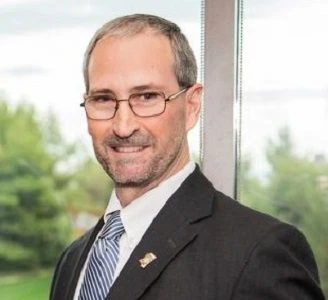Mississippi forges its own path with sports betting launch

When Mississippi’s first legal wagers were placed at the Beau Rivage Resort & Casino on August 1, the state took a step into the unknown. Despite the Supreme Court’s repeal of the Professional and Amateur Sports Protection Act (PASPA) in May, legal wagering has been concentrated in northeastern US states. Aside from Nevada, where sports betting has been legal since 1949, the furthest south regulation has reached is West Virginia.
This leaves Mississippi, surrounded by a cluster of football-mad states, in a particularly strong position. Early revenue reports certainly backed this up. In September, the month in which the National Football League (NFL) kicked off, the state generated $31.8m (£25.0m/€28.0m) in handle. Of this total, $22.9m was wagered on football, with the state generating $5.5m in taxable revenue, from a state win percentage of 17.3%.
Considering average win percentages tend to hover around the 5% mark, this was too good to last. October’s figures showed that while handle was up at $32.8m, customer wins on football saw revenue plummet to $1.2m.
Despite this drop, Mississippi Gaming Commission executive director Allen Godfrey (pictured) is pleased with the market’s early performance.
“While it’s true that revenue is down in October, amounts wagered have not dropped,” he explains. “It’s the hold that’s fallen from a particularly unrealistic level to something more accurate.”
“My early impression from a regulatory standpoint is that [the launch] has been a pretty seamless exercise,” he continues. “It has driven new business to the casinos, and that’s always a plus.”
This, he says, is not a surprise: “Sports betting has been around in the US forever, so I felt it was going to be a particularly popular product. Time will tell how popular it remains.”
The fact he can describe the launch as “seamless” largely stems from the fact that the state wasn’t simply jumping on the post-PASPA bandwagon. Mississippi effectively cleared the way for sports betting in 2017, stripping out language expressly prohibiting the vertical as part of a bill to regulate daily fantasy sports.
This, he suggests, was common sense due to the prevalence of offshore operators targeting US customers. He says that from the states’ standpoint, sports betting is an existing product, but only now can become a viable revenue stream for legislatures.
However, Godfrey adds, regulations are unlikely to force illegal bookmakers out of the US – even if Mississippi lawmakers cleared the way for online and mobile wagering.
“I think when we get on-premise mobile wagering – if and when that comes about – operators can take some of the business away from the illegal market,” he explains. “Operators have to make their product as convenient as [the illegal market’s] is.”
He points out that with the majority of Mississippi’s casinos located in the counties to the extreme west and south of the state, there are 75 out of 82 counties that don’t offer any form of legal gaming.
“I do believe that if you had online or mobile wagering similar to Nevada, you may cut into [the offshore operators’] business,” he says. “But I would also say you won’t ever get rid of illegal gaming, because of the benefits – it’s anonymous, so there’s no paper trail and no taxable income.”
Despite this, Godfrey says that a concerted effort to crack down on illegal operators simply isn’t feasible.
“We do go after illegal gaming, whether betting, gaming or slots, but my larger focus is on regulated, legal gaming,” he says. “I have to prioritise my assets, and the bigger concern is making sure the legal market is being run effectively.”
Ensuring a successful legal sports betting market could soon become key to the future success of the Mississippi market. It may have been an early mover, benefitting from being surrounded by jurisdictions that don’t offer legal wagering, and far from the eastern states that will soon be fighting for one another’s players. But now its neighbouring states are getting in on the action.
Arkansas’ midterm elections saw voters approve a measure allowing casinos – and sports betting – in four locations. Louisiana, which has around 24 corporate or tribal gaming venues, is also expected to make its move in 2019.
“I think it’s great for Mississippi to be ahead of the curve, but how long it will stay ahead of the curve remains to be seen,” Godfrey says.
It’s not just to ensure a successful sports betting market. Godfrey argues that sports betting is “not a major money maker” in comparison to other states, but notes that operators have told him they are pleasantly surprised by the vertical’s early performance, and it’s knock-on effect for the rest of their businesses.
“Gross gaming revenue between August and October was up by over $30m,” he says. “Only around $7m of that is from sports betting, so you’re looking at $23m or so in additional GGR, and the only difference is that we now have sports betting.”
